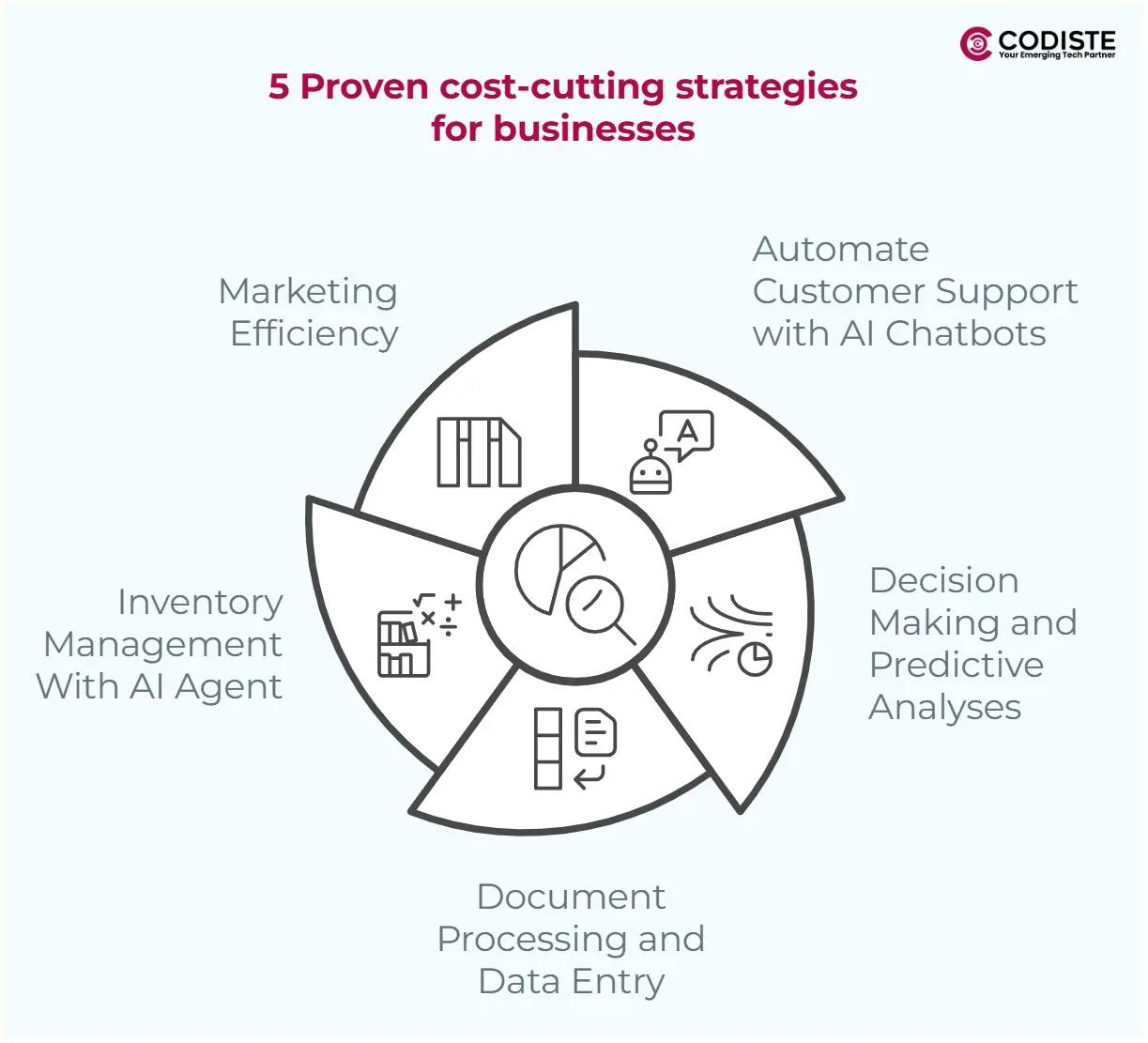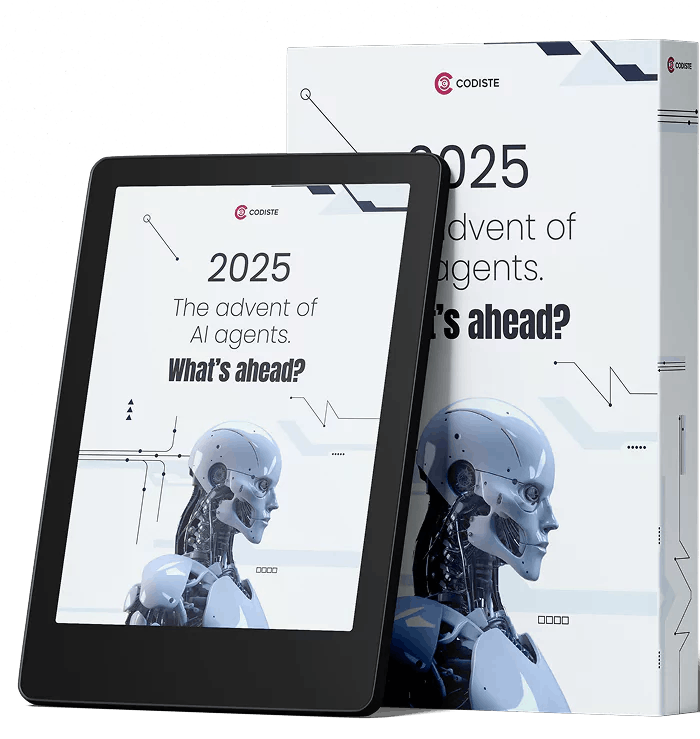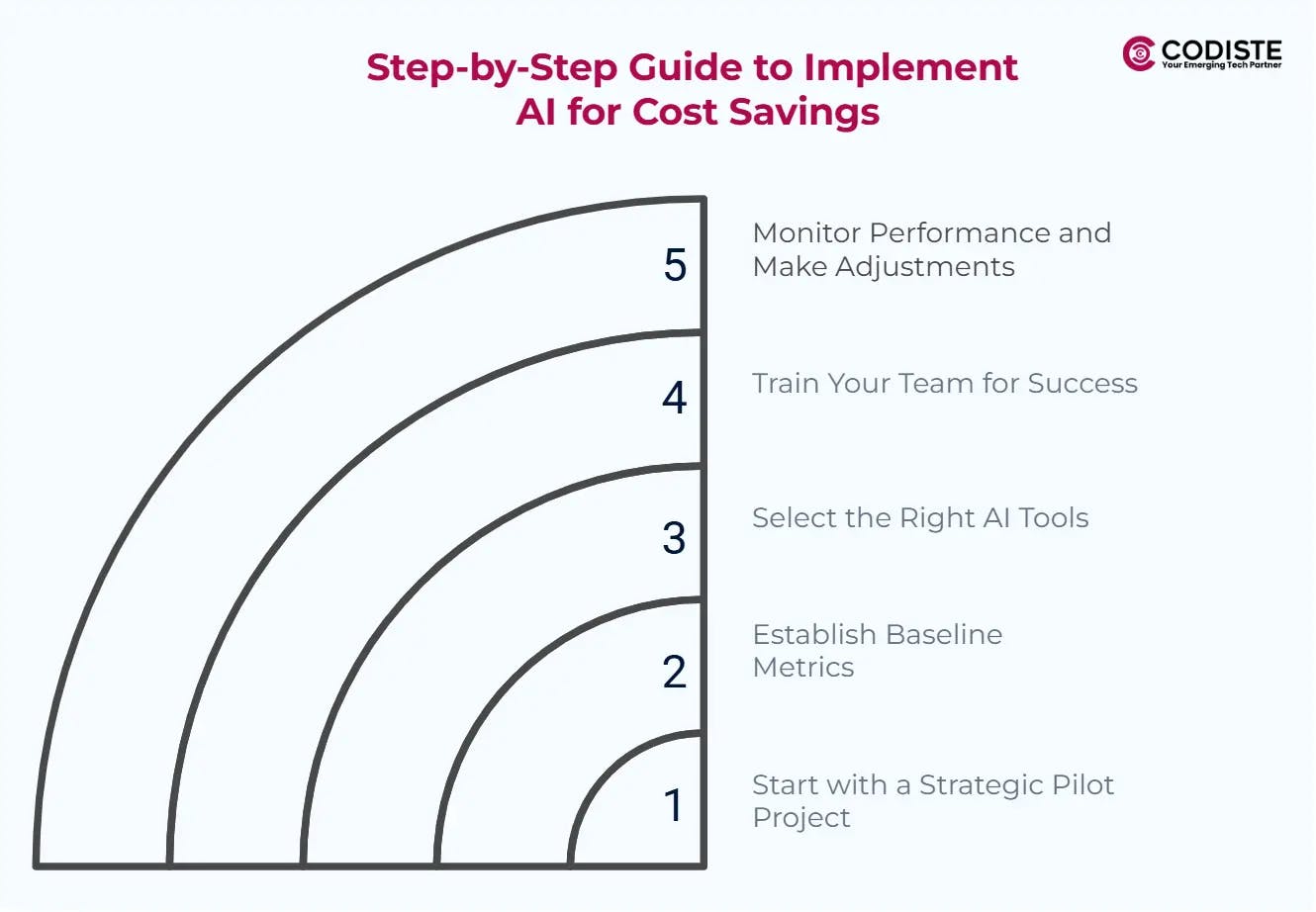


In today's technological world, staying ahead with the latest trends is essential for business growth. Many people assume AI agents are only accessible to large corporations, but this is untrue.
With technological advancements, businesses of all sizes can integrate AI agents into their operations to streamline processes, reduce costs, and drive profits. Companies can now leverage AI tools from Software-as-a-Service (SaaS) platforms to customized solutions to optimize workflows and achieve their goals without breaking the bank. This blog will dive into how enterprises can reduce business costs with AI agents, which can be a game-changer in maximizing profitability.
Artificial Intelligence has revolutionized cost reduction across industries by automating tasks, optimizing business processes, and enhancing decision-making.
AI-powered tools offer significant financial benefits:
In marketing, AI improves ad positioning and targeting, cutting costs by up to 50%. Financial institutions are utilizing agents for fraud detection, reducing losses by nearly 50% (PwC). These sector-wide applications of agentic AI demonstrate how to drive businesses efficiently and measure savings.
As businesses adopt AI, its potential for cost reduction and competitive advantage continues to grow, enabling more intelligent resource management and sustainable growth. The following section will show how this adaptation leads to profit.
In today's competitive business landscape, finding innovative ways to reduce operational costs while maintaining quality is crucial for sustainable growth. AI agents have emerged as powerful tools that can significantly impact your bottom line.
Let's explore five practical strategies that leverage AI agents for cost reduction to create substantial savings for businesses:
Gone are the days when businesses needed massive customer service teams to handle routine inquiries. AI-powered chatbots have revolutionized customer support by providing instant, accurate responses to common questions, 24/7.
Companies implementing AI chatbots report 30–40% cost reductions in their customer service operations. These intelligent agents can handle multiple conversations simultaneously, reducing wait times and improving customer satisfaction. They learn from each interaction, becoming more effective over time.
AI agents have revolutionized business decision-making by analyzing vast amounts of data to deliver actionable insights and significant cost savings.
Through inventory optimization and resource allocation, businesses typically achieve:
The impact extends across operations, with impressive real-world results:
Successful implementation requires quality data, appropriate AI tools, and comprehensive staff training. Organizations typically see 15–25% reductions in operational costs and 10–15% increases in overall efficiency. The Return on Investment (ROI) is often achieved within 12–18 months. The key to success is viewing AI-powered decision-making as an ongoing optimization process where systems continuously learn and adapt.

Manual data entry and document processing are not just time-consuming—they are expensive and prone to errors. AI agents equipped with Optical Character Recognition (OCR) and Natural Language Processing (NLP) can automatically extract, categorize, and process information from various documents, including invoices, receipts, and contracts.
Businesses using AI for document processing report up to 80% reduction in processing time and a 95% decrease in errors.
Example: An accounting firm that previously spent 20 hours per week on manual invoice processing now completes the same work in 2 hours using AI, saving approximately $40,000 annually in labor costs.
Effective inventory management is a delicate balance: having enough stock to meet demand while avoiding excess inventory costs. AI agents excel at this balancing act by analyzing historical data, seasonal trends, and market conditions to predict optimal stock levels.
These systems can automatically trigger purchase orders, negotiate with suppliers, and optimize warehouse space.
Example: A retail business implementing AI inventory management reduced its carrying costs by 25% and decreased stockouts by 30%, resulting in annual savings of $200,000 while improving customer satisfaction.
Marketing budgets often suffer from inefficient spending and poor targeting. AI agents can transform your marketing efforts by:
Companies using AI marketing tools report up to 40% reduction in customer acquisition costs while improving conversion rates by 30%.
Example: A software company using AI automation to save money reduced its marketing spend by $100,000 annually while increasing leads by 50%.
Is your strategy ready for intelligent automation?
Shift to a proactive model with this deep dive into agent-based systems.

Successfully implementing AI requires a methodical approach that balances innovation with practicality. This guide outlines essential steps to transition seamlessly to AI-powered operations while maximizing ROI.
Kick off your AI journey with a targeted pilot project. Focus on a single department, such as customer service, where AI chatbots can handle inquiries, reduce response times, and cut costs. Departments with repetitive tasks (like document processing, HR screening, or marketing optimization) often yield quick, measurable results.
Document current operational metrics to evaluate AI’s impact effectively. Track labor costs, error rates, processing times, and customer satisfaction. Develop a comprehensive cost analysis framework. Time-based metrics, such as processing speed, offer valuable insights into efficiency improvements.

Choose AI solutions that integrate smoothly with existing systems and scale with business growth. Prioritize strong security features and reliable vendors. Budgets vary by scope: small businesses may spend $10,000–$25,000, mid-sized companies $25,000–$35,000, and enterprises $35,000–$50,000+. Consider these costs in the context of expected returns.
Prepare staff with training on AI concepts and system operations. Hands-on practice and detailed documentation are essential for building confidence. Communicate regularly about implementation progress. Establish feedback channels to address concerns and suggestions.
Track Key Performance Indicators (KPIs) such as cost reductions, time savings, and customer satisfaction. Regularly review system performance to identify optimization opportunities. ROI timelines range from 6–12 months for small projects to 12–18 months for larger ones, with benefits including 20–40% cost reductions and significant productivity gains.
AI implementation is an ongoing process requiring patience and adaptability. By following these structured steps, businesses can unlock the full potential of AI, driving cost savings and operational excellence.
Our custom AI development solutions can transform your business. Learn more about leveraging AI agents effectively right now.
AI offers unparalleled opportunities to optimize operations, reduce costs, and boost profitability:
This structured approach to cost-effective AI implementation offers a clear pathway for businesses to achieve significant cost savings while improving operational efficiency and maintaining service quality.
As the technology around agentic AI continues to evolve, early adopters will gain significant momentum and competitive advantage through reduced operational costs and improved business process automation. This strategic implementation of agents offers businesses better opportunities to reduce costs while improving efficiency and service quality.
The key is to always start with clear objectives and a systematic approach to implementation. The question is no longer whether to implement AI or not, but rather which strategy to implement first.
But, if you are in the whirlwind of taking that first step today, our AI agent developers Codiste are ready to lead and help you identify areas in your business where AI agents can make the most immediate impact. We can help you begin right away. The sooner you begin, the sooner you'll see the benefits to your bottom line.




Every great partnership begins with a conversation. Whether you’re exploring possibilities or ready to scale, our team of specialists will help you navigate the journey.